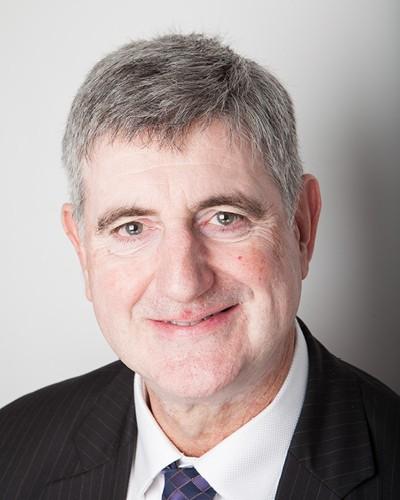
Refugee Integration: A Global Perspective
by Tony Smith (Former Director General of UK Border Force)
February 13, 2023
Some people may raise an eyebrow to see a former Director General of the UK Border Force sitting on the Commission on the Integration of Refugees. Especially one who spent over 40 years working in the UK Home Office, exercising immigration enforcement powers. Yes, it is true that during my career I arrested, detained and removed people who had entered the UK illegally and had no right to stay here, including some failed asylum seekers. That was my job. To serve the elected government of the day, regardless of political colour, and to enforce the law. Indeed, I worked for a great many Home Secretaries from across the political spectrum – all of whom were elected on a ticket of exercising firm but fair immigration and border controls.
So why am I here? Firstly, because I think I have a lot to offer, having spent half a century in the immigration and border control business both at home and abroad. Secondly, I believe that everybody’s view deserves to be heard. It’s OK to disagree, and yet still hold the alternative view in high esteem. Thirdly, if the Commission is to produce a report that is politically neutral and commands support from diverse stakeholders with contrasting views, then it is important that we reflect all sides of the story. This means exploring not just how well or how badly we treat asylum seekers and refugees wishing to settle here; but also taking a broader view of how our communities feel about welcoming them, and on what terms. Because – in my experience – it will be far easier to integrate newcomers into our communities if our cities, towns, villages, and hillsides are happy to welcome them, than if they are not.
Let me be clear – I am not anti-immigration, nor anti-refugee. There is no doubt in my mind that controlled immigration and regulated refugee reception is a good thing – not just for the migrants and refugees themselves; but also for the communities they are joining. There are countless examples of people who have come here as immigrants and refugees – or come from immigrant and refugee families – who have made huge contributions to the United Kingdom. Some of them are amongst my fellow Commissioners. At the same time, an uncontrolled immigration and asylum system which favours those who come by illegal and unsafe routes over others who are potentially more deserving is worrying. It fuels human smuggling and international organised crime, as well as risking lives. Also, where migration is seen as a threat to society because it is out of control, it fuels political tension. The debate becomes toxic, rather than measured. Extreme views from both right and left come to the fore. As David Frum – former speech writer for George W Bush and staff writer for “The Atlantic” – wrote in 2019: “if liberals won’t enforce borders, fascists will”.
The UK is not alone in seeing huge increases in irregular migration. Informed sources predict that the number of detections of irregular migrants at the US Southern border will rise to 3 million this year. This is the highest figure ever – and almost a tenfold increase on a decade ago. This excludes an estimated 600,000 “gotaways”, who avoided detection altogether. Because US policy precludes the detention of family units claiming asylum, an ever-increasing number of children are now crossing the border with single adults. Around 15 – 20% of these children were found by DNA testing to have no family relationship to the accompanying adult. This fuels concerns that child trafficking is being used as a passport to enter the US. It is also causing significant concern and unrest in many States, who are ill prepared to receive what amounts to a one per cent population increase, over the course of just 12 months.
According to the European Border Agency (Frontex) more than 308,000 irregular entries were detected at the external borders in the first 11 months on 2022 – an increase of 68% on the previous year, and the highest number since the EU migrant crisis of 2016. This puts the 45,000 irregular boat arrivals across the English Channel last year into perspective.
In short, we are seeing an unprecedented volume of irregular migrants moving across international borders and claiming aslyum that shows no sign of abating – and the vast majority of them are being facilitated by international crime gangs.
This means we need a new global order on how we manage immigration and refugee policy for the future. According to UNHCR, 89.3 million people worldwide were forcibly displaced as a result of persecution, conflict, violence, human rights violations, or events seriously disturbing public order at the end of 2021. With the best will in the world, they can’t all come here. We need to determine who can come; who can’t come; and what to do with those who can’t come, but come anyway.
Hopefully, alongside other experts, I can help the Commission on the Integration of Refugees to come up with some sensible and measured proposals to fix our broken asylum system, which take account of the views of all relevant stakeholders, in this complex area of policy.
Read the Commission’s first publication now for more information.

